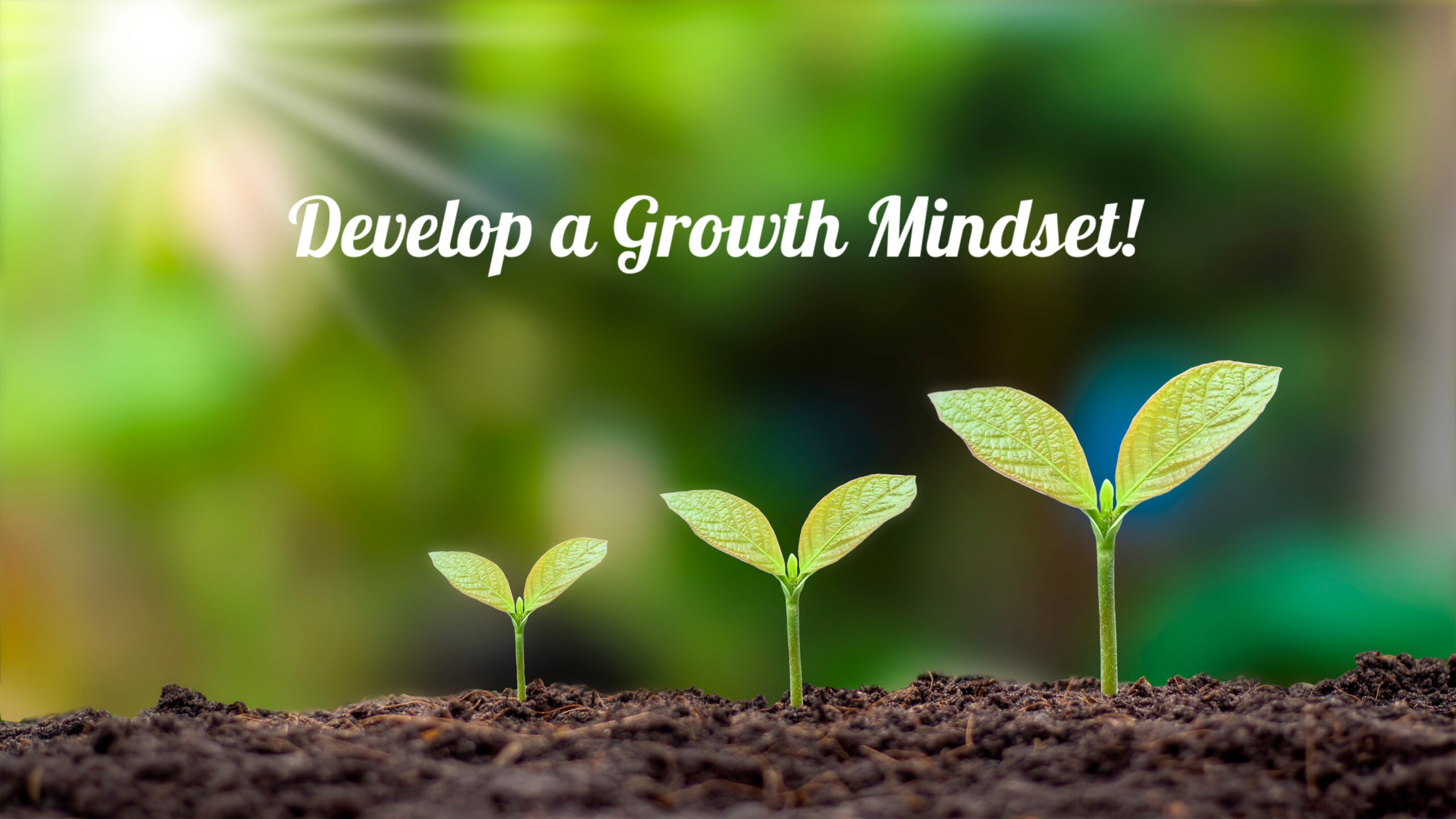
Develop a Growth Mindset!
Feb 06, 2024When life throws you a curveball, you have a choice in how to respond. How we look at our setbacks and the stories we tell ourselves about them can affect our ability to deal with future challenges. We can choose to see setbacks as opportunities for learning and growth or as limitations placed on our development. Part of how we decide to see challenges is determined by our mindset.
Mindset refers to a habitual outlook or attitude that determines how you will interpret and respond to situations. Part of our mindset consists of the stories or narratives we tell ourselves. These stories can become part of our identity, e.g., “I’m a fighter.” These narratives can also include beliefs about what we’re good at, what we’re not, and why we excel at certain things but not others e.g., “I’m great at celebrating life,” “I’m terrible at saving money.”
Having a Growth Mindset means we believe we can improve at things. Growth Mindset is premised on the idea of neuroplasticity—the fact that our brains can change with deliberate learning and effort. When we have a Growth Mindset we believe our intelligence can be developed. By contrast, when we adopt a Fixed Mindset, we believe that our ability and intelligence are determined. In other words, there’s no room for improvement. As a result, Fixed Mindset can undermine performance and decrease motivation. It can also decrease resilience in the face of setbacks making us less likely to persist in the face of challenges.
A critical aspect of Growth Mindset is identifying with our efforts rather than the results. Rather than attach to labels such as “smart,” “exceptional athlete,” and “excellent writer,” keep the focus on the process and on improvement. When your identity is liberated from performance, you’re free to learn and enjoy things. In other words, failures do not mean you’re a failure. Losses are opportunities to learn. You can grow. Growth mindset encourages us to embrace challenges, learn from criticism and persist in the face of setbacks.
Research suggests that the type of praise we receive as children can increase or decrease our performance and motivation. It can also contribute to the development of a Growth or Fixed Mindset. In a study of children solving math problems, those who were praised for their intelligence, tended to pick easier problems that they expected to perform well on and shied away from challenges. By contrast, children who were praised for their effort, e.g., “I like how you keep trying,” chose more challenging problems so they could learn. They were less concerned with failure and outperformed children who had received intelligence feedback.
Effort-based praise, unlike label-based praise, weakens the tendency to identify with the results of our efforts, i.e., “I lost therefore I’m a loser,” or “I won therefore I’m a winner.” By not identifying with the results of our efforts we are more resilient and better prepared to take on challenges. Effort based praise helps us to develop a “growth mindset.”
So, if you want to cultivate a Growth Mindset, begin praising yourself based on your efforts not on your results. Remember to detach from outcomes and reframe your setbacks as opportunities to learn. You just may find you’re more willing to take on the challenges that can help you grow and take your performance to the next level.
- 1 Likes

Dr. Lisa Napolitano is an expert in cognitive-behavioral therapy (CBT), dialectical behavior therapy (DBT), and other mindfulness-based treatments. A licensed psychologist in New York and Florida, she is the Founder and Director of CBT/DBT Associates, a boutique psychology practice group. Dr. Napolitano is an expert in the treatment of stress, anxiety, worry, and emotion regulation problems. She has specifically designed her treatment approach for executives, attorneys, and other high-functioning individuals whom she believes shouldn’t have to sacrifice their careers to manage their stress and work on developing their potential.
